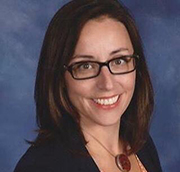by Collette Broady Grund
In the summer of 2011, everything in my life seemed to be coming together in just the way I’d always wanted. I was in love with my handsome professor husband. We’d been married for nearly ten years, and in that time, I’d finished my master’s degree and he had finished his doctorate. I was ordained as a Lutheran pastor and served a number of congregations while he searched for a tenure-track teaching job. When he finally landed a job in Mankato, Minnesota, we rejoiced to be moving closer to his family and some of our friends, and I started looking for a settled call where we would baptize and raise our infant son.
In June of 2011, I started that call in the congregation where I still serve. We bought a beautiful century-old house and the furniture to go with it. We had everything we’d ever dreamed of: stable jobs in our chosen fields, a comfortable home, and most of all, a sweet chubby toddler with big brown eyes and a dimply smile. At night, while my husband was out socializing with his new colleagues, I read to our son until he fell asleep. Our life was perfect.
At least, that’s how I made it look.
The reality is, I was miserable. No matter how hard I worked on my marriage, on my parenting, on my career, I constantly felt that I was a failure. Even though I had achieved everything I’d been working my whole adult life for, it didn’t feel like enough.
My instinct was to conceal my vulnerabilities and project serenity and strength, to cover my flaws and present only perfection to the world. As a result, I was exhausted, physically and emotionally, and my digestive system was in constant rebellion. The stress of holding my life together was taking its toll, though no one looking in from outside could have known.
Six months later, my husband announced he wanted a divorce. He’d been having an affair with one of the colleagues I’d heard so much about and I hadn’t had a clue.
Grace among the mess
 The unraveling of my well-constructed world was the scariest thing I’ve ever endured. I was desperately afraid that my ministry would be destroyed when my parishioners–God’s people– found out what a mess my life was. Though I preached and taught God’s power to work through imperfect people, I excluded myself from that grace. More is demanded of leaders, I told myself. Over time I came to take literally Jesus’ words in Matthew 5: “Be perfect therefore, as your heavenly Father is perfect.”
The unraveling of my well-constructed world was the scariest thing I’ve ever endured. I was desperately afraid that my ministry would be destroyed when my parishioners–God’s people– found out what a mess my life was. Though I preached and taught God’s power to work through imperfect people, I excluded myself from that grace. More is demanded of leaders, I told myself. Over time I came to take literally Jesus’ words in Matthew 5: “Be perfect therefore, as your heavenly Father is perfect.”
As my marriage dissolved, my façade crumbled too. My mess was out in the great wide open for all to see. I expected judgment, but to my surprise, I was shown compassion, especially from other divorced people. People who appeared to have perfect marriages now shared with me that theirs were second marriages after disastrous first tries, or that they’d endured and healed great brokenness together. People I barely knew called and wrote, joining their anger and sadness and pain with mine, reminding me I wasn’t alone.
Holy brokenness
One of the holiest experiences I’ve ever had as a pastor was leading a grief and loss group in the year after my divorce. In it, people shared their experiences of loss, from the death of beloved spouses, to a diagnosis of early-onset Alzheimers, to the redefining of a career. We held our pain communally and offered it to God for healing and redemption. The Holy Spirit hovered over each meeting with palpable presence, and we all came out of those six weeks more whole and more convinced that God is active among us.
I felt at the time–and still do–that none of that would have been possible without my divorce. The members of that group might not have been able to trust me with their heartbreak if they’d thought I’d never felt it myself. We discovered together that the redemption of our brokenness is rarely the vindication we hope for. Instead, our losses become the place where we see God more clearly than ever before. In this way, our brokenness becomes holy.
When I was called to the community I serve, I was sure that God wanted me here because I had gifts to share that this church needed. I was not prepared for the way the community would minister to me. Their acceptance of my imperfection and their gentleness in my grief was the very presence of Christ to me. With their help, I learned that real is better than perfect, and that God works best when I am at my worst.
In Lutheranism, we call this a paradox. It’s something that doesn’t make sense at first glance, but is proved true by our experience. As Martin Luther discovered in his own deep struggle, our imperfections are not an embarrassment to cover up or something for which we should continually punish ourselves. They are, instead, an opportunity for God to show up and do what God does best: love and accept us as we are, inviting us to rest in grace.
Discussion questions:
1. What in your life are you tempted to cover up, fearing that God or others won’t love you if they know your imperfections?
2. When have you made yourself vulnerable in sharing something with others and experienced acceptance and grace?
3. What might be a place of brokenness where God wants to work in your life today?
Closing prayer
God, we bring our brokenness to you, trusting that you will meet us with love and grace. Be present among your people as we share our imperfections that we may find holiness where we need it most. In Christ’s name, we pray. Amen.
 The Rev. Collette Broady Grund is nearly 40 and a new mom (again!) in Mankato, Minnesota where she shares a grace-filled life with her husband, five children and Bethlehem Lutheran Church.
The Rev. Collette Broady Grund is nearly 40 and a new mom (again!) in Mankato, Minnesota where she shares a grace-filled life with her husband, five children and Bethlehem Lutheran Church.


Dear Collette,
What a truly inspiring story. There are so many points of your generous sharing that, I know run true in most people’s lives. I am so happy for you, and I am reminded of the story about The Silversmith. They must wait until the fire completes the piece of silver, to the point they can see their own reflection. Then they know the silver is ready for whatever is next. I thought of this as I read your story, and what you went through until you could experience that perfection is a lie. For myself, I reflect on a life filled with so many lessons, and I am still going through them, until someday I look into the mirror and see God’s love, patients and light looking back at me! Just a little more! Thank you for your honesty and reflections. I am very proud of you.